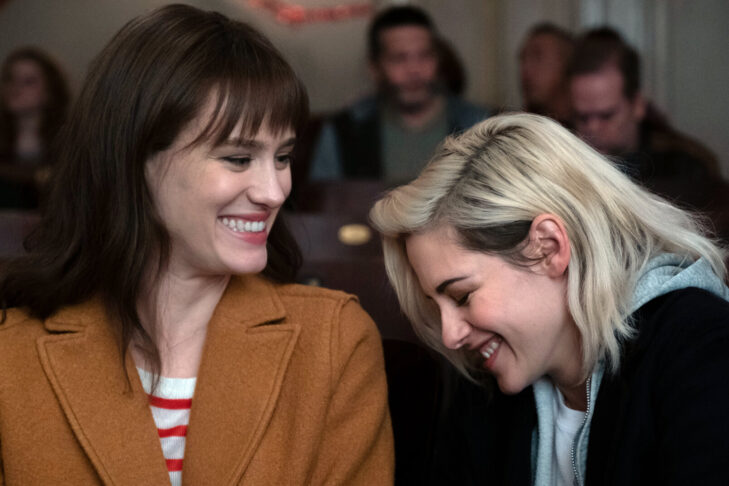With the swirling discourse surrounding the allegedly fluffy Christmas flick “Happiest Season,” many gay Jews found themselves tuning in to witness a rare LGBTQ movie with a light holiday theme (spoiler alert: it gets heavy fast). In response to “Happiest Season” and Hallmark’s frankly mediocre track record with Hanukkah movies, maybe it’s time to give some other Jewish holidays (and some Jewish LGBTQ characters) a chance.
For Purim:
Fresh off a breakup, Rachel begrudgingly accompanies her friends to a masquerade Purim carnival dressed as Esther. Across the ballroom floor, a masked queen Vashti catches Rachel’s eye and they share some dry banter before Vashti’s friend (dressed as campy Haman) sweeps her away. Interest piqued by this missed connection, Rachel travels across her city to track down the mysterious queen and her flamboyant escort with the help of a coat check stub, her long-suffering roommate and their fat corgi, Maximus. Lots of elaborate costumes, shenanigans and a budding romance to finish.
For Passover:
Isaac is a little worried about bringing his old camp friend/crush Aaron to his family’s Passover seder, but as soon as they walk in the door, a misunderstanding leads Isaac’s parents to believe Aaron is his boyfriend! Even more shockingly, Aaron insists that they play along to spite Isaac’s obnoxious older brother and his new girlfriend. But as the charade continues, Isaac can’t help but wonder if this is all a joke, or if Aaron is developing feelings of his own. Fake dating gone awry as siblings compete, wine is spilled and childhood crushes are revealed.
For Rosh Hashanah:
Hannah is an up-and-coming baker in a new city, and after a picture of her intricate apple and honey cakes goes viral, she finds herself swimming in orders. Julia is part food writer, part problem-maker whose family bakery is experiencing a lull due to Hannah’s newfound success. Julia manages to wheedle her way behind the scenes, but instead of health code violations, she finds a kind soul, a quiet kitchen and maybe even…love? The classic rivals-to-lovers trope literally never goes out of style, and against the backdrop of new beginnings, a story of family and devotion unfolds.
For Hanukkah:
Samuel and Leah have been best friends since childhood, growing up together in their conservative Jewish community, but time and jealousy have forced them apart. They reunite on the first night of Hanukkah, a chance meeting on a bench in the freezing cold, but Leah has since transitioned and believes that Sam doesn’t recognize her now that she is living as herself. Little does she know that Sam is having some gender revelations of his own, and as his feelings for Leah deepen over the eight nights of Hanukkah, he comes to terms with the fact that identity and relationships are not always as clear-cut as they seem. A narrative focused not on coming out, but on self-actualization and trans romance. Happy ending a must.
Telling LGBTQ stories well relies heavily on allowing LGBTQ people into the writers’ room, rather than just in front of the camera. While these pitches are all in good fun, it’s remarkably easy to fill the media gap of feel-good Jewish film with gay and trans characters. After all, Jewish LGBTQ people exist in all seasons, and not merely for entertainment. Their happy endings are just as important, and just as deserved.



